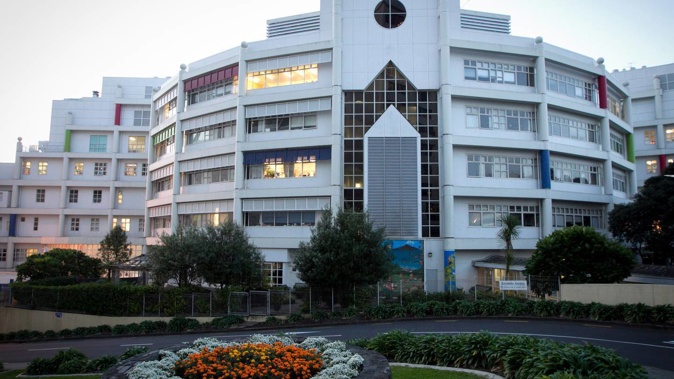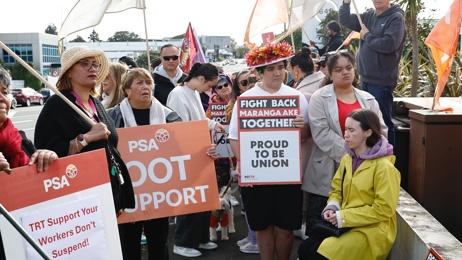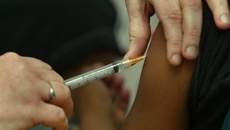
Only half the beds in a newly opened, state-of-the-art intensive care unit at Starship Hospital are being used after a $40 million upgrade - partly because of a shortage of specialist nurses.
The hospital opened the expanded paediatric ICU in November and more beds were added last month, raising its potential capacity from 22 to 30 beds.
However, a shortage of nurses means just 16 beds are being used until more specialist staff can be hired. Additional beds could be used in emergencies, the hospital said.
Starship’s leadership downplayed the significance of the empty beds, saying the ICU had been upgraded to cope with future demand over the next 10-15 years. Demand had also reduced because of a drop in respiratory conditions during the Covid pandemic.
That contrasts with previous statements that the old 22-bed unit was facing “critical shortages” and that an expansion was needed “urgently”.
Nurses’ unions say the situation at Starship’s paediatric ICU (PICU) underlines the dire shortages in their sector, which they say are partly driven by burnout and uncompetitive pay and conditions.
In 2020, the Government put $25m towards the Starship project through the New Zealand Upgrade Programme, a $12 billion infrastructure investment.
The hospital’s fundraising arm, the Starship Foundation, ran a high-profile campaign to find the remaining $15m, telling potential donors the unit was “at critical capacity every 48 hours”.
Demand was being driven by population growth and changes in treatment for critically sick children. “The need to expand is now urgent”, director of surgical services John Beca said at the time.
The upgrade was set to be completed by winter 2022 but was delayed by Covid-19 and construction industry constraints.
Construction began last April and an additional four beds were in place by November. Another four ICU beds were ready last month, and there was space for two more to be added.
/cloudfront-ap-southeast-2.images.arcpublishing.com/nzme/3262Q5JYNZ55RBOMQRDOVF3R4Y.jpg)
Nursing shortages at Starship were partly driven by uncompetitive pay rates and conditions, unions said. Photo / Natalie Slade
Beca said the PICU’s capacity was determined by the number of nurses available for each shift, rather than bed numbers. About 16 beds were currently in use, and this number could be increased when acute demand surged.
“While the expanded PICU has 30 beds, with capacity to eventually expand to 32, it’s important to note that the new physical capacity has been built to meet the needs of Starship for the next 10-15 years,” he said. “[F]rom the outset, we planned to build the PICU team progressively to meet future demand.”
Asked why the urgency to increase bed numbers appeared to have changed, Dr Beca said there had been a 15 to 20 per cent reduction in PICU demand because of a drop in respiratory conditions during the pandemic. This was expected to return to pre-Covid levels, a trend which had already started overseas.
National Party health spokesman Shane Reti said the rationale for the upgrade was that the PICU was regularly near full occupancy and urgently needed more beds.
“I am concerned if their business case was that they are at capacity and this was the argument for increasing the number of beds and resources.
“With winter coming, I would be very cautious about understaffing our premier paediatric ICU unit in New Zealand and strongly suspect this is due to health workforce shortages.”
National Party health spokesman Dr Shane Reti said Starship's business case for the larger ICU was based on urgent need for more beds. Photo / Bevan Conley
Starship is aiming to hire 40 more nurses for the PICU and wants to have 26 beds staffed by July 2024. It is recruiting nationally and internationally for staff, though it is up against high demand globally for PICU nurses.
“Therefore it will take time to increase the size of the team,” Beca said.
Nurses Society director David Wills said PICUs were “resource-hungry” because they usually required one nurse per patient, 24 hours a day. The old 22-bed PICU needed 130 full-time registered nurses, he said.
Wills agreed the shortages were a global problem. While hospital nurse salaries in New Zealand were now equivalent to Australian counterparts after a pay agreement last year, a large number of nurses had already left for overseas or were being aggressively recruited to other parts of the sector.
Anne Daniels, president of the New Zealand Nurses Organisation, said PICU nurses usually needed a minimum of 18 months’ experience and additional training on top of a nursing qualification.
“That’s why there’s a shortage. Even though there may be nurses in ED, for instance, they can’t just walk into the PICU and do the job.”
Shortages were affecting all parts of the health sector, she said.
“We are all absolutely stretched. We are burnt out. For many facing a day of work, they are wondering if they can get through it.”
The Government was criticised for not initially including nurses on a straight-to-residency pathway when it changed immigration settings last year. They were eventually added to the “Green List” in December.
Information released under the Official Information Act showed that a $300,000 Government campaign to recruit critical care nurses led to eight people being hired between the launch last February and June.
In an email, an Auckland District Health Board recruiter responded with disappointment to that total: “It ain’t much, I know that … sadly.”
Take your Radio, Podcasts and Music with you

/cloudfront-ap-southeast-2.images.arcpublishing.com/nzme/WPAFKZUJWVD35JTGQA5N6ARBI4.JPG)








